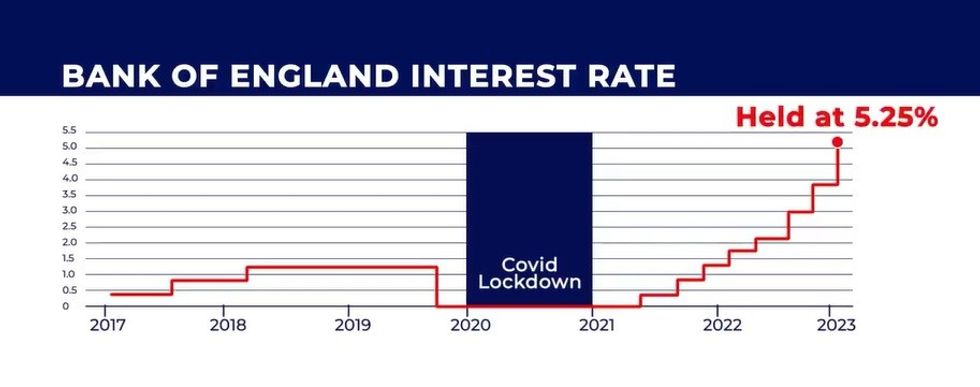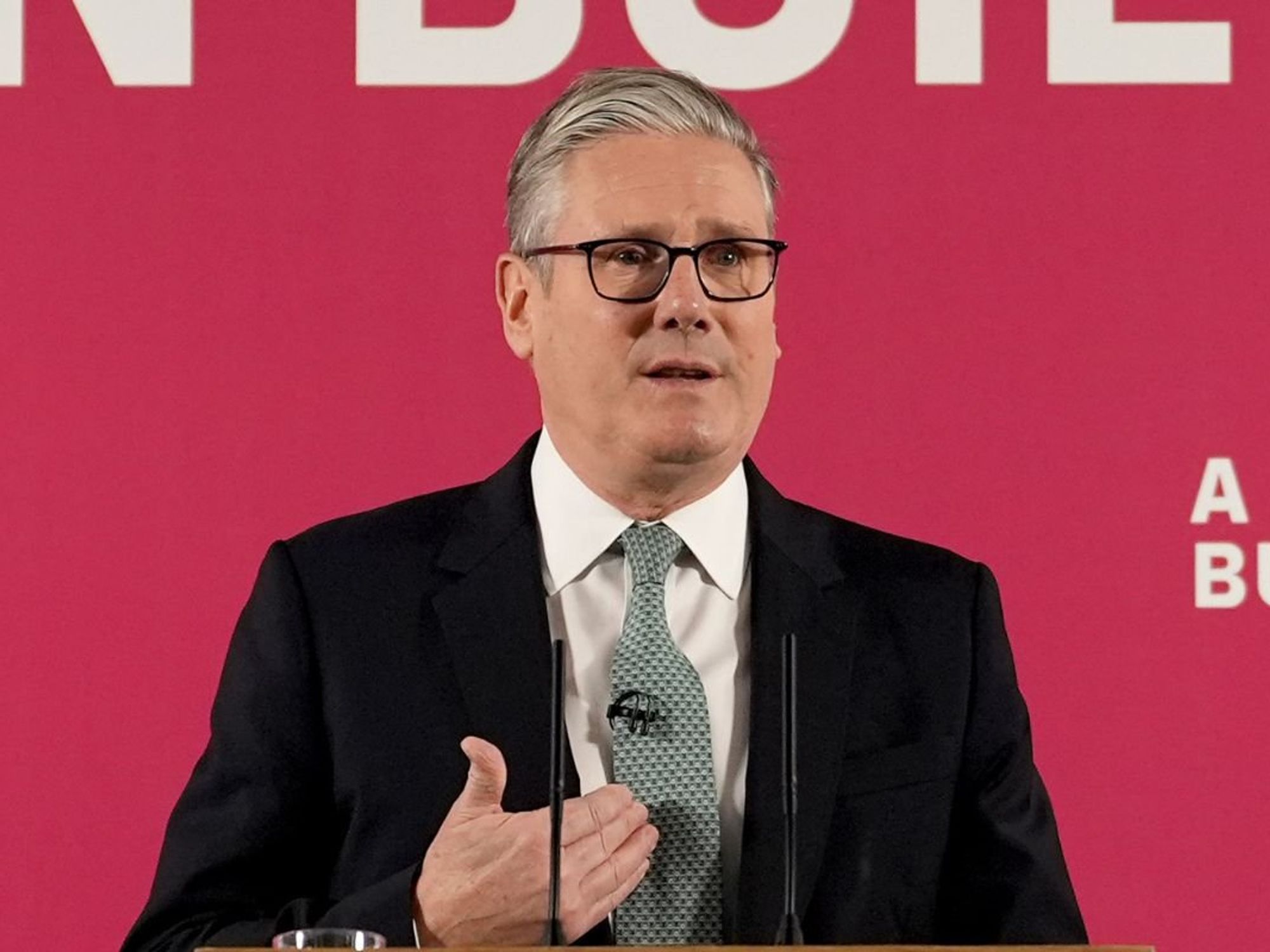Debt warning: Britons urged to 'carefully plan' repayments as interest rates hit 35%

Debt repayments are on the rise due to the BoE's decision-making
|GETTY

Interest rate hikes from the Bank of England are continuing to impact the personal finances of millions
Don't Miss
Most Read
Latest
Britons are being urged to "carefully plan" future debt repayments as interest rates skyrocket to north of 35 per cent, according to research carried out by Moneyfactscompare.
The average purchase annual percentage rate (APR) on credit cards jumped from 34.7 per cent at the start of March 2024 to 35.3 per cent at the beginning of June 2024, according to the financial information's Unsecured Lending Trends Treasury Report.
This represents the highest this figure has been since Moneyfacts began recording this data in June 2006.
In recent years, interest rates on credit cards has risen in response to actions carried out by the Bank of England.
The central bank's Monetary Policy Commitee (MPC) has voted to raise the nation's base rate as it seeks to ease inflation.
As it stands, the Bank has held interest rates at 5.25 per cent since August 2023 which has been passed onto savings and mortgage customers by banks.
Do you have a money story you’d like to share? Get in touch by emailing money@gbnews.uk.
 Debt has becoming a major issue for households amid the cost of living crisis | GETTY
Debt has becoming a major issue for households amid the cost of living crisis | GETTYHowever, the interest charged on debt has increased substantially in recent years with experts reminding households to get on top of their debt repayments.
Many people have opted to move their debt from a credit card that charges interest to a zero per cent balance transfer card.
This could help households accrue significant savings but the process of doing this has become increasingly expensive in recent years.
In June 2022, the average balance transfer fee remained at only 1.95 per cent, later rising to 2.26 per cent and 2.42 per cent, respectively.
Rachel Springall, a finance expert at Moneyfacts, outlined the dilemma many borrowers find themselves in.
She explained: "The cost to borrow on credit cards has reached a record high, making it vital for borrowers to repay their debt if it’s bearing interest, or switch it to an interest-free offer.
"However, the cost to transfer debts has also risen over the past quarter, and consumers looking for a zero per cent purchase offer will find the availability of products stalled.
"The cost of living may result in some borrowers turning to short-term credit, such as a credit card or their overdraft, but due to the cost of interest, these should only ever be used temporarily to cover essential or unexpected expenses.
The money expert cited research carried out by UK Finance found that outstanding balances on credit card accounts grew by 9.5 per cent in the 12 months to February 2024.
With the number of zero per cent balance transfer offers falling, she highlighted that providers are likely to be wary over this recent rate hike and who remains in constant debt.
LATEST DEVELOPMENTS:
 The Bank of England base rate has held interest rates at a 16-year high since it was hiked to 5.25 per cent last August | GB NEWS
The Bank of England base rate has held interest rates at a 16-year high since it was hiked to 5.25 per cent last August | GB NEWSSpringall added: "Borrowers will need to carefully plan their repayments to ensure they are in the best possible position to pay off their debts as soon as they can. One way to do this quickly is to change a minimum repayment to a higher fixed sum every month, which can be changed back should the need arise.
“An unsecured personal loan could be ideal for borrowers who want a fixed monthly repayment plan and know exactly when their debts will be repaid.
"However, the cost to borrow £5,000 over three years has risen to its highest level in over a decade. Borrowers will need to decide whether a loan is the right choice versus a more flexible credit card, but they can seek advice if they are unsure.
"Seeking advice from a debt charity or asking for support from an existing lender is always wise to better manage repayments and find out ways to avoid high interest charges.”










